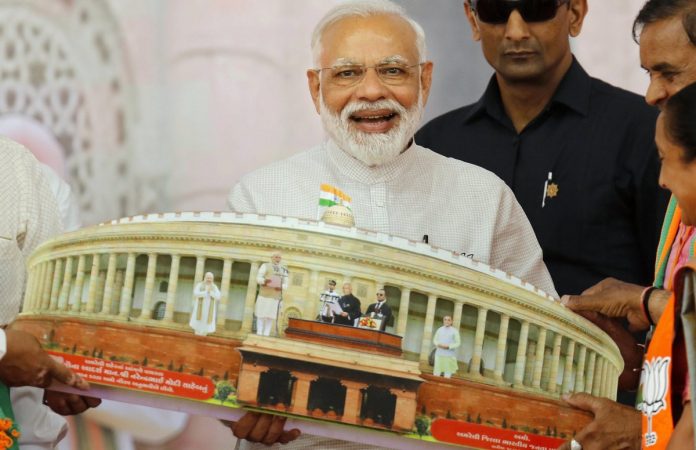
- 3Shares
The 2019 Lok Sabha elections are proving to be truly momentous. Many commentators would say that even in 1977 and 1991 or 1998 and 2004, the tension was palpable. But I do not remember any election being as polarising as this one. Not even 1977, which ended the Emergency and Indira Gandhi’s reign.
The spectre of democratically elected authoritarian-style rule or parliamentary chaos has begun to haunt several political leaders and intellectuals. Communal confrontations or collapse of order is feared in West Bengal and Jammu and Kashmir.
The veneer of normalcy is deceptive. I have been covering elections since 1971 and have not been as stumped as I am today.
Interaction with various sections of people in different parts of the country reveals dormant angst and anxiety. Even a simple list of options that emerges from these discussions show the complexity of the situation.
The big question playing on everyone’s mind is: Who will be sworn in as the Prime Minister in the last week of May, and will Narendra Modi get majority on his own? What will happen if the BJP gets 60-80 seats less than the 282 it won in 2014? Will he then resign on moral or political grounds or will the BJP replace him, citing lack of confidence? Will he be replaced by Nitin Gadkari or Rajnath Singh or someone else? Will the National Democratic Alliance (NDA) recommend Nitish Kumar as PM if it fails to get enough post-poll allies?
Similar questions are being posed about the future of the Congress-led United Progressive Alliance (UPA). Who will be the likely consensus candidate for PM if UPA manages majority in Lok Sabha? Will it be Rahul Gandhi, Mayawati, Sharad Pawar, Naveen Patnaik, Ashok Gehlot or someone else?
Titanic fights are taking place in this high-stakes election battle. It’s Rahul Gandhi vs Smriti Irani in Amethi, Digvijaya Singh vs Pragya Singh Thakur in Bhopal, Nitin Gadkari vs Nana Patole in Nagpur, Sushil Kumar Shinde vs Prakash Ambedkar in Solapur, and Rajnath Singh vs Poonam Sinha vs Acharya Pramod Krishnam in Lucknow. Some long-distance runners are clearly facing a tough challenge from their opponents.
The TINA argument
Political tension is building up across the country, and election forecasts have reached a feverish pitch. From corporate rooms to family drawing rooms, press clubs to marriage ceremonies, there is heated speculation about the numbers the BJP-led alliance and the opposition would get this election season.
I wonder how the anchors, commentators and panelists embedded by Narendra Modi and Amit Shah in TV studios would conduct debates if the BJP fails to get 200 seats. They could still argue that the party is single-largest in the House and Modi should be called to form the government even if the opposition parties together have more numbers.
Give him a chance and enough time to establish majority, would be their argument. A similar situation had reportedly emerged in Karnataka recently and in Goa in 2017 where after the election results, frantic efforts were made to cobble together the numbers.
The embedded media would, of course, be euphoric if Rahul Gandhi is defeated, the Congress’ seat tally remains below 100, and the opposition fails to get majority in Lok Sabha. This would give them yet another opportunity to say ‘There Is No Alternative to Modi’.
Argumentative Indians
During this election, not just the media, many people from the legal fraternity, some retired generals, professors and other such ‘educated experts’ from the upper middle class have become dedicated ‘alter-egos’ of Narendra Modi. Their so-called arguments at home or in offices are essentially ego clashes.
India hasn’t seen such ego investment in any election or in any leader as in Modi. There are heated arguments but no dialogue, there are high-decibel fights but no conversations around Modi. These are the new ‘argumentative Indians’ who cannot listen to any counter-point or argument.
When the results are declared on 23 May, hundreds and thousands of egos are going to get deflated. If Modi cannot get majority or is not able to form the government, there could be a parliamentary gridlock or a constitutional breakdown.
In the next few weeks, we will know if this is just a hyperbolic apprehension or the political system has degenerated to unrescuable levels.
The author is a former editor and Congress member of Rajya Sabha. Views are personal.
Check out My543, our comprehensive report card of all Lok Sabha MPs.
- 3Shares